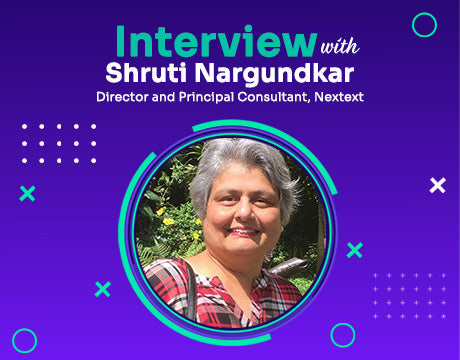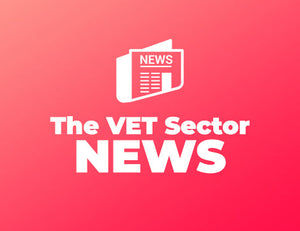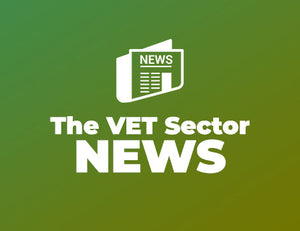
Interview with the compliance guru-Shruti Nargundkar, Director and Principal Consultant, Nextext
SUKH SANDHUInterview with the compliance guru-Shruti Nargundkar, Director and Principal Consultant, Nextext
Shruti is the founding director of NEXTEXT, a vocational education and quality and compliance consultancy that assists registered training organisations with their compliance, quality management and registration with the National VET Regulator requirements.
Shruti has been an accredited Health Check Services Consultant for Australian Council for Private Education and Training (ACPET).
Here is the copy of the interview:
For more than two decades, you have provided assistance to the VET industry. How has your experience been?
Thank you for inviting me to share my experience with your readers!
I have been in the field of education for 35 years now, and have spent more than 25 of these years involved in teaching and vocational training in India, Oman and Australia. Every moment in each sector has been a lot of hard work but has also been a rich learning experience.
As a teacher and trainer, I value appreciation by past students who found a vocation or career, developed self-confidence, or the love for a language. I also value the learnings from my mentors, and appreciation by peers and employers. As the founder and director of an RTO, I grew with my colleagues and employees, and enjoyed the recognition my RTO received in the industry.
In the last 10 years, I have continued to support the VET industry as a quality and compliance consultant and resource developer. So overall, I can say I have had a long and successful run, and it has been a very rewarding experience.
What are your most important services for the VET sector?
At Nextext, we offer a wide range of services for the VET sector, such as, internal audits against SRTOs 2015, ESOS / NCP 2018 compliance, government funding requirements, post-audit rectification services, initial registration and re-registration of RTOs, and CRICOS registration. Our services also include ELICOS, such as addition to scope, internal audits and ELICOS assessment and curriculum development.
Apart from this, I personally sit on the academic boards of some RTOs, providing them with leadership in assuring academic standards and quality and compliance with various regulatory standards.
The other important aspect of our services is the designing of detailed compliant assessment resources for VET qualifications from several training packages and accredited courses such as BSB, SIT, HLT, CHC, TAE and EAL. We also develop LLN tests and provide assessment validation and training and assessment strategy validation services.
Why did you decide to pursue a profession in vocational education and training?
I am an educator and lifelong learner at heart, and have worked as a teacher, teaching English language and literature ever since I started working. My introduction to vocational education and training was through teaching vocational English in Oman over 25 years ago.
When we migrated to Australia, my husband and I established an RTO in 2002, which soon became very successful and gained a reputation not only in the student market, but also with the regulators, as one of the nine best and largest private RTOs on CRICOS in Victoria at that time.
This rich and varied experience of running my own RTO, ensuring its quality and compliance, showing empathy and commitment as an educator and instructional designer, has led me to carve out a career in VET quality, compliance and resource developing.
Even today, as a consultant, I continue to learn from every assignment. I am also an educator in every assignment, in that I provide mentoring and training to all my RTO clients overtly and covertly. In the same way, every VET training and assessment resource we develop is also a learning opportunity for me.
Perhaps this is the reason the VET industry has become my vocation!
What has been the biggest significant change in the VET industry during the past ten years?
I think there isn’t just one significant change.
In fact, this past decade has been one of turmoil and flux, with so many changes such as introduction of new regulatory standards, regulatory regimes, changes to government funding models, overhauls in international student visa models and immigration policies, all of which have impacted significantly on RTO operations and compliance performance and student enrolment numbers. The global pandemic has necessitated a sudden and fundamental shift in training and assessment delivery modes and the adoption of hybrid models.
These changes have posed many challenges for providers, trainers and students alike.
What are the most significant concerns and challenges now confronting the vocational education and training (VET) industry?
Again, one can’t talk of the ‘now’ without referring to the pandemic that has affected every area of human activity, and the VET industry is no exception.
In the wake of the “Great Resignation” the VET industry is also facing trainer assessor shortages, as training staff were laid off, or have moved on. The shortage is also for staff with digital skills required for hybrid training modes. Therefore, trainer upskilling or reskilling to use technology is a challenge.
The pandemic has changed the way employers do business, and the current VET system may not be ready with courses to meet these new needs of employers and industries. VET training package developers need to develop new products or revise existing training products by identifying and forecasting emerging skills required by industry.
VET providers need to increase training products’ ‘speed to market’ by developing suitable content and effective assessments for ‘microcredentials’ to quickly upskills learners and trainers.
We've worked on countless projects together in the past, and I've always found you to be exceptionally knowledgeable and resourceful. However, what skills do you believe are necessary for employment in the education and training sector?
Thank you for your kind words, Sukh! It’s been fun working with you.
I think people who want to work successfully in the VET sector, whether they are in training/assessment, student services or administration roles, need technology and digital literacy skills, a working knowledge of cyber security tools and processes, and people skills and subject area knowledge.
VET providers need to continue to focus on student experience and ensure that new modes of delivery continue to meet their compliance and quality requirements.
Workplace mental health skills training for managers and employers has become more relevant now than ever. This will enable those who manage people to implement preventative strategies to reduce sickness absence and create a supportive organisational culture.
RECENT POSTS





